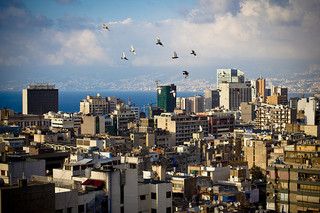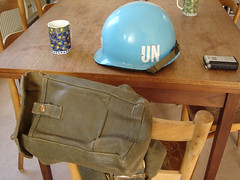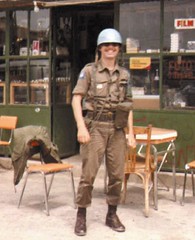21 people have died and over 100 have been injured as a result of cluster bombs left over from the Israeli invasion and bombing of Lebanon over the summer. I was just reading yet another report about it. DemocracyNow had also mentioned last week that Hezbollah had used cluster ammunition. We know that the US has used cluster bombs at various times during their invasion of Iraq. I was also recently informed that the Dutch military owns cluster bombs for an unknown purpose.
Cluster bombs. What useful purpose could such a thing serve, as if bombs themselves weren’t destructive enough. Apparently the chance to have tiny bomblets drop everywhere and blow up later is an appealing thing for all these armies.

It is indeed a crime against humanity, if not a war crime, when these bombs are used and then days, months, and years later, civilians are blown up when they happen to encounter an unexploded cluster bomb. This recent story in Lebanon was of children picking olives in an orchard.
Besides the obvious condemning of each of the above mentioned governments, as well as any nation that owns cluster bombs, there are more guilty parties out there. Specifically, the companies that produce these bombs and make big money selling them. They include: General Dynamics Corp, L3 Communications Holdings Inc, Raytheon Co, Lockheed Martin Corp, Alliant Techsystems Inc, EADS Co (European Aeronautic Defense and Space Company) and Thales SA. All of these companies should face charges for their role in international crimes; producing weapons that have no defensive use and are known to be uncontrollably destructive.
Now that I made that list, not only am I outraged but I’m also ashamed that so many companies are involved in producing such a terrible weapon.



